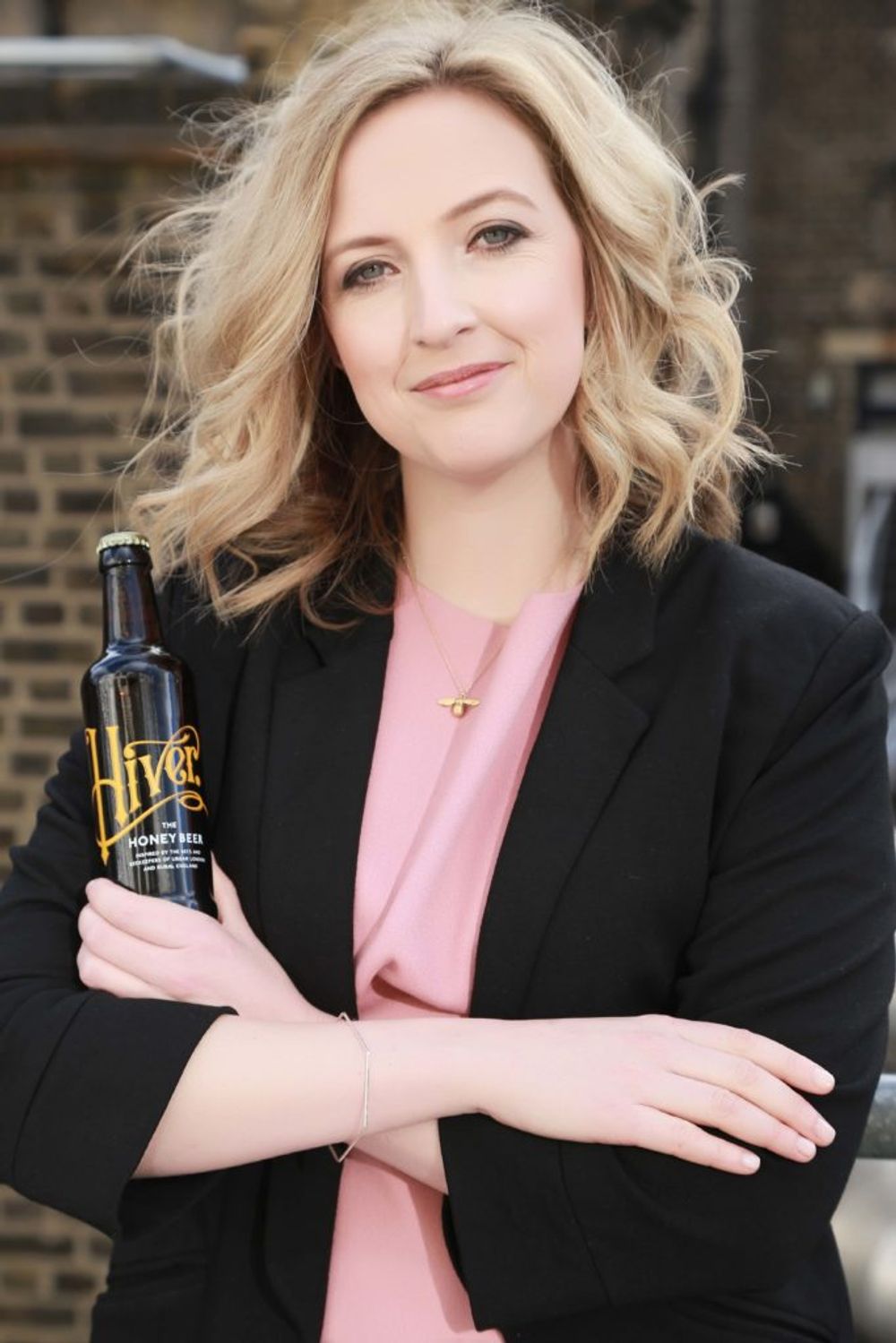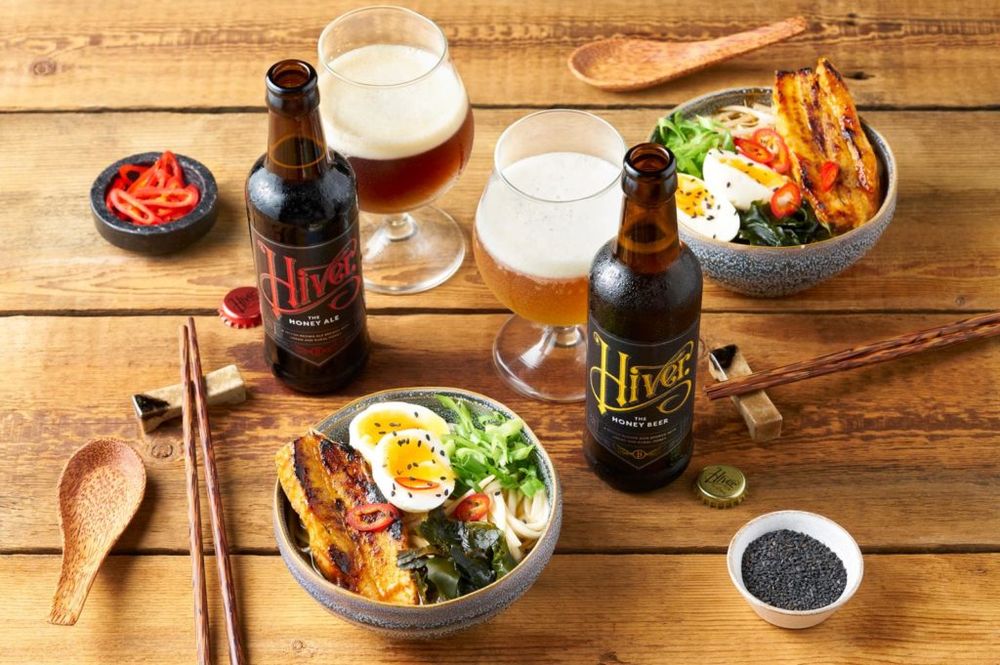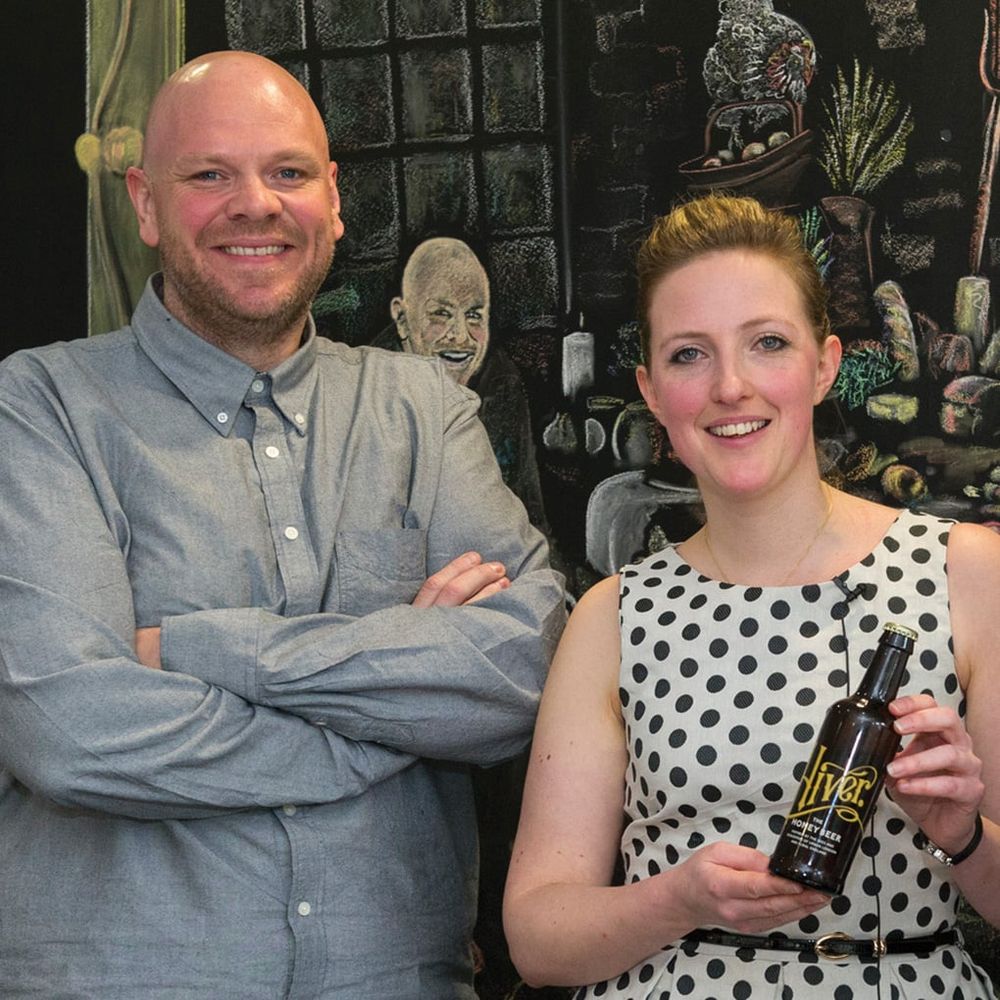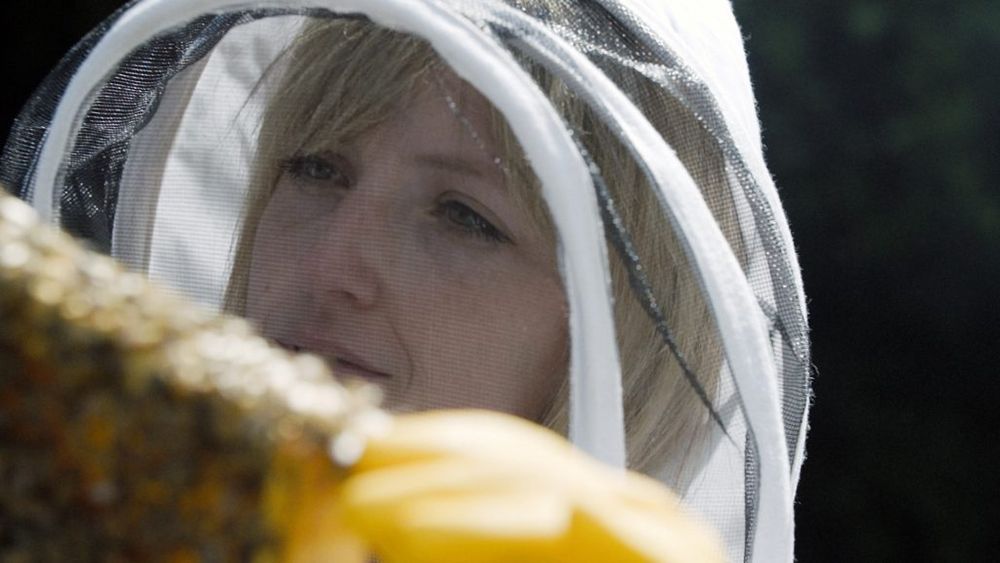Hannah Rhodes set up Hiver Beers because of her “admiration for London’s urban beekeepers and a passion for craft beer”. She has come a long way in a short time with listings in premium grocers and across the on-trade.
How did Hiver Beers come about?
I started working for a brewery when I first moved to London from Hull and was blown away by a beer tasting. It was the first time I had considered that there was a beer out there for everyone. I am a big fan of sustainable produce and while attending an event for Urban Food Fortnight I was introduced to urban beekeeping and quickly found myself obsessed with all things bee related.
A friend bought me a bottle of honey beer as a joke (being the sum of both of my passions) and it was awful! The seed was planted that there was a way of doing this better.
Our hivequarters, taproom and shop is in a railway arch near London Bridge. It is the heart of the business and where I started it all with a pitch at Maltby Street Market on Sundays and a spare desk at Jensen’s gin distillery five years ago.

Hiver Beer’s Hannah Rhodes has taken what she learnt working for Meantime Brewery into creating her own beer
How did your career prepare you for what you are doing now?
It was invaluable. I had worked at Meantime Brewery when it was a fledgling business in sales, marketing and logistics. As a young and hungry graduate, I was given free rein to launch a couple of beers.
There was no budget, but I absolutely loved creating something from scratch alongside the brewing team. The beers – including London Lager – quickly became the brewery’s top-sellers. Working in a small business that was scaling involved lots of highs and lows, so it was there that I gained the grit and resilience to develop a new brand or category.
What is so different about Hiver Honey beers?
We have three beers brewed by Hepworth Brewery in Billingshurst, West Sussex: a blonde – our first launch, an ale and an IPA, made with urban and rural honey.
Starting with no budget, I knew that the quality would be the only way of protecting the business as it grew. So it was trial brew after trial brew and honey tasting after honey tasting to develop the best quality beer I could.
Quality ingredients and method are so important to who we are. I couldn’t be prouder of the gold medals we won last year at the World Beer Challenge and European Beer Star: the first international awards we had entered.

The full Hiver beer range is being promoted as a good match for a wide range of food which has seen it pick up such prestigious restaurant and pub accounts
I was worried that people would assume I’d tried to create a beer for women, but that’s not the case. I recognised that the lack of bitterness (it’s not sweet as we ferment out the honey) would give us a flavour profile that had a wider and different appeal to say a triple hopped IPA.
I’m proud that Hiver has a very neutral split in terms of female to male drinkers and that makes us unique. Having created a beer that is both of the highest quality and yet easy drinking, has been a lovely surprise.
How are the cans performing since being introduced last autumn?
They have been doing well. Whole Foods Market has been a wonderful support. The cans also do very well in gifting and mixed brewer six-packs, thanks to And Union. We’re looking for more on and off-trade partners for cans, which work for BBQs, picnics and festivals. We have also created a bespoke honey beer for Nando’s, made from the hives it has in Putney, which are now available in all London Nando’s restaurants.
What were the challenges with a major brewer already in this space?
To be honest, we have such different audiences and if anything it was a help early on, with Fuller’s Honey Dew making people familiar with honey beer. The two brands are so far apart in flavour and style (our blonde uses a lager yeast for example). Our Honey Brown Ale, while much darker than Honey Dew in colour, does have a crossover audience and it will be interesting to see how that develops in Sainsbury’s.

Hannah Rhodes is now working with leading chef Tom Kerridge to list the beers in his restaurants
What is it like as a woman in this male dominated profession?
It has been great, but I am conscious that I stand out and as someone that doesn’t shout to be heard, I had to establish my own style, talking quietly to encourage people to lean in.
There are still archaic traditions in drinks. The traditional golf day, for example, has a long way to go to be inclusive and with so many fresh and modern ways of building trade relationships, I’d love to see some changes there.
Something that I used to find frustrating, but amuses me now, is when I meet someone and they expect that a man is behind Hiver. Although there is now a fantastic team who have helped the business grow, I started on my own.
How important was getting a national listing in Sainsbury’s in June?
It’s wonderful to see the support on social media as people find Hiver. The listing is a big step in proving that we are not just THE honey beer, but also unique as a premium British craft, which feels like a category of its own.
Who else lists Hiver?
Mitchells & Butlers has been wonderful and we work with the business in Miller & Carter, Browns and All Bar One. Other listings include Whole Foods Market, Harvey Nichols, Tom Kerridge restaurants, Accor Hotels, The Roundhouse, The Dorchester and Wild Honey St James.
Why do you give 10% of your profits to pollinator charities and urban space projects?

I’ve long since believed that businesses can make the world a better place. Consumers are looking to live their values through the products they consume. I like to hand out wild flower seeds with my business cards, to support bees, and also we are introducing people to beekeeping with experiences in London and, also starting this year, at Sussex vineyard Albourne Estate.We are also now running Hiver Experiences through our website with Bee Urban whereby people can learn all about bees and beekeeping in London with specially created programmes where you can get the chance to visit the hives we use to make our honey beer.
What next?
We’ve created one or two seasonals, including a Honey Gose which I loved, but I’ve never wanted a big range. We want to focus on introducing people to our blonde and providing exciting experiences and gifting options. As consumers continue to want something different for every mood and occasion, we’ll see an increase in the number of drinks served on tap from non-alcohol aperitifs and wines through to beer. This increased competition for taps is where I think picking two or three beer styles will come into play.
In the off-trade I’m sure that kombuchas and no and lows will continue to grow. Also as consumers become more educated about the beer styles they enjoy and start-up breweries progress their brew kits to encompass lager production, there will be more beer styles on-shelf and a continued push on quality.
- If you would like to find out more about Hiver Beers then go to its website here or contact Dean@hiverbeers.com.








































